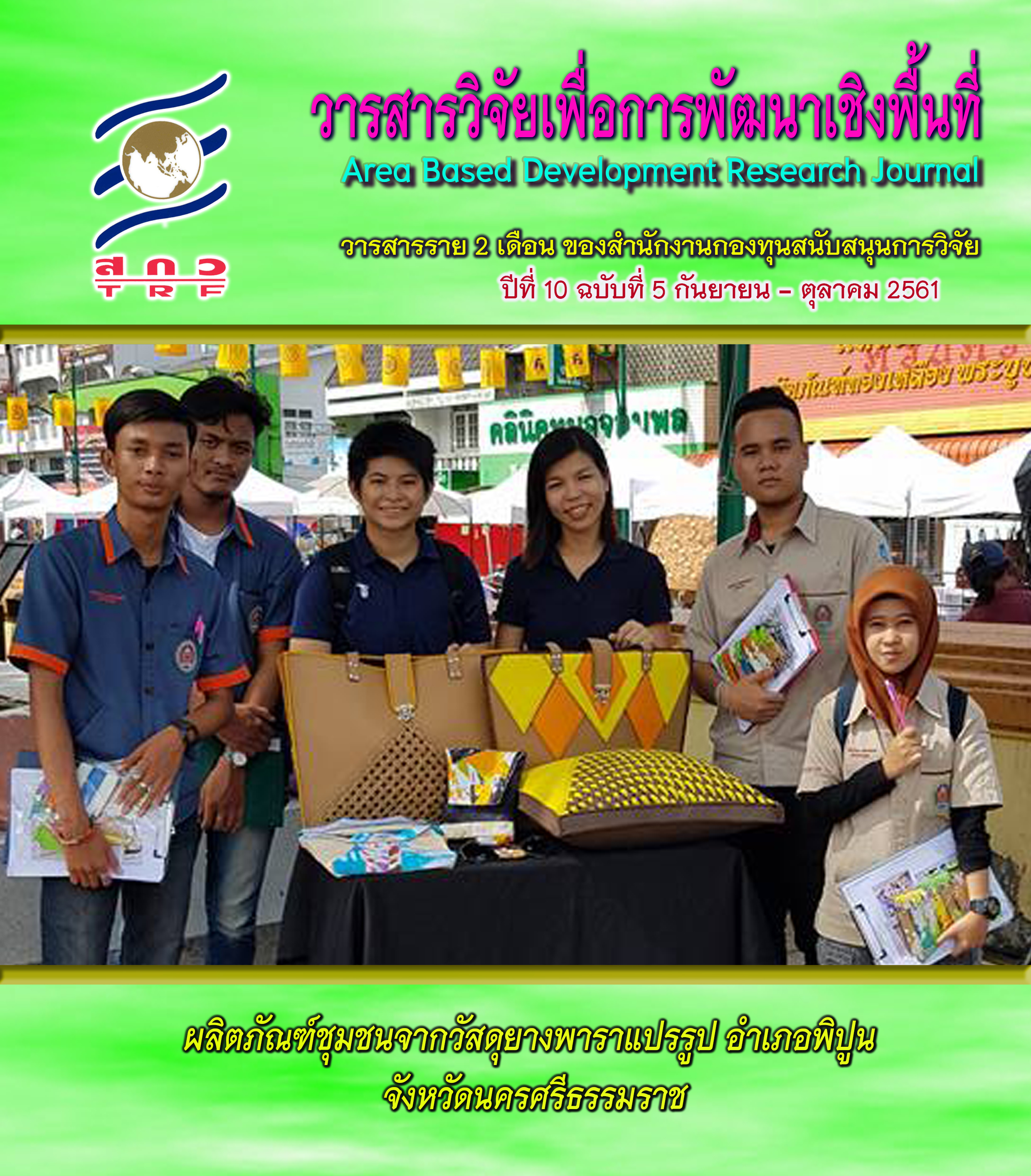Cultural Tourism Management by the Local Knowledge of Lantan Ethnic Group, Nam Dee Village, Lao PDR
Main Article Content
Abstract
The study investigates the cultural tourism management of Lantan ethnic group in Nam Dee village, the province of Luang Namtha, Lao PDR, and explores the cultural tourism network of the ethnic group. The research employs qualitative research methodology approach and Participatory Action Research (PAR) which includes a field study, in-depth interviews, participant observation, field notes, and training. The results of the research signify the potential and wisdom in cultural tourism management of Lantan ethnic group at the village level. Their capabilities are observed in various aspects: 1) tourism management, 2) activity and profit sharing, and 3) the applications of natural resource management, knowledge on environments, social norms, local customs and culture, all of which lead to relationships with others at different levels. The community management is independent as long as it keeps the community moving forward and learning to adapt to the changes in contemporary world. However, in terms of unity in tourism management, the community has its weaknesses for being unable to fully self-function, and having to overly rely on outsourced organizations and external agencies. The development guidelines for cultural tourism network of ethnic villages in Luang Namtha, Laos PDR suggest to be an educational tourism and cultural exchange networks in which a learning community emerges between the tourists and the locals. For instance, a tour group visits the village and observes the local ways of life, fabric weaving, spinning, dyeing, and bamboo pulp paper making processes. For cultural tourism activities, it is emphasized that the Lantan ethnic group focuses on living a slow life, eating clean food and running green economy, from which the visitors learn a simple lifestyle and the green way of local productions.
Article Details
Area Based Development Research Journal values copyright protection and licensing to safeguard author rights and facilitate the appropriate dissemination of research. Our policies ensure openness, accessibility, and attribution. Authors retain copyright ownership, and articles are published under a Creative Commons Attribution License (CC BY), allowing sharing, adaptation, and proper attribution. Authors have the freedom to publish under the CC BY license, granting broad reuse and distribution permissions. The journal supports posting articles on third-party repositories, adhering to institutional and funding restrictions. Author guidelines detail copyright and licensing requirements, empowering authors with knowledge about their rights and responsibilities. These policies cultivate an environment of collaboration, openness, and responsible sharing, benefiting authors and the research community while honoring intellectual property rights.


